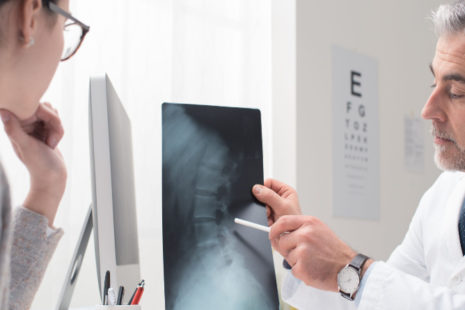A rotator cuff injury can cause pain in various areas around the shoulder joint, depending on the specific location and nature of the injury. The rotator cuff is a group of muscles and tendons that surround the shoulder joint, providing stability and facilitating movement. Common symptoms of a rotator cuff injury include pain, weakness, and decreased range of motion in the shoulder.
Here are some typical locations where pain from a rotator cuff injury may be felt…
- Front of the Shoulder – Pain may be felt at the front of the shoulder, especially when reaching overhead or reaching behind the back. This can indicate involvement of the supraspinatus tendon, which is one of the tendons of the rotator cuff.
- Outside of the Shoulder – Pain may be experienced on the outside of the shoulder, particularly during activities that involve lifting or reaching away from the body. This could suggest a tear or inflammation of the infraspinatus or teres minor tendons, which are located on the backside of the shoulder.
- Top of the Shoulder – Pain at the top of the shoulder, near the point where the shoulder meets the neck, can occur with rotator cuff injuries, particularly if the injury involves the subscapularis tendon, which is located on the underside of the shoulder blade.
- Upper Arm – Pain may radiate down the upper arm, particularly along the side or front of the arm. This can occur if the rotator cuff injury causes irritation or impingement of the nearby bursa (fluid-filled sac) or surrounding soft tissues.
- Night Pain – Pain from a rotator cuff injury may also be worse at night, especially when lying on the affected shoulder. This can be due to inflammation and irritation of the injured tissues, exacerbated by pressure from lying on the shoulder.
It’s important to note that the location and severity of pain can vary from person to person, and other shoulder conditions or injuries can produce similar symptoms. If you experience persistent shoulder pain or suspect a rotator cuff injury, it’s essential to consult with a healthcare professional, such as an orthopedic specialist or physical therapist, for an accurate diagnosis and appropriate treatment plan. Early intervention can help prevent further damage and promote recovery.




